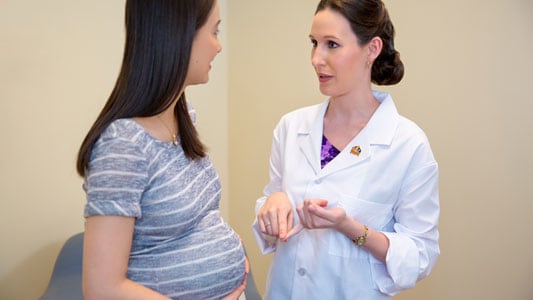Key points
- All women should get screened for group B Streptococcus (group B strep, GBS) bacteria during each pregnancy.
- The test is simple and doesn't hurt.
- Screening results help healthcare providers take steps to protect newborns from serious GBS infections.

Why get screened
Screening women during pregnancy is one of the best ways to prevent GBS disease in the newborn's first week of life.
The results help healthcare providers know who's at increased risk for having a baby who could get GBS disease. Healthcare providers can take steps to decrease this risk.
Common exposure for youngest babies
Most babies who get GBS disease in the first week of life are exposed to the bacteria during birth.
When to get screened
Get screened for GBS bacteria during the 36th or 37th week of each pregnancy according to the
- American College of Obstetricians and Gynecologists (ACOG)
- American College of Nurse-Midwives (ACNM)
GBS bacteria screening should happen even when a cesarean birth is planned.
Why this timing matters
GBS bacteria come and go naturally in people's bodies. People may test positive for the bacteria at some times and not others. That's why women get tested late in their pregnancy, close to the time of delivery.
Testing methods
The test is simple and does not hurt. Healthcare providers rub a sterile swab ("Q-tip") on vagina and the rectum to collect a sample. They send the sample to a laboratory for testing.
Testing results
Women who test positive for GBS bacteria are not sick. However, they're at increased risk for passing the bacteria to their babies during birth.
Healthcare providers give women who test positive antibiotics during labor to help protect their newborns from getting sick.
